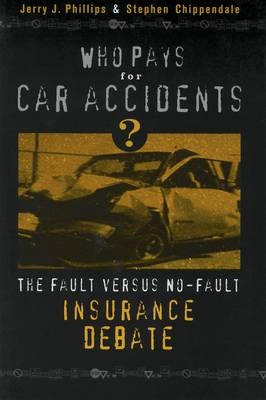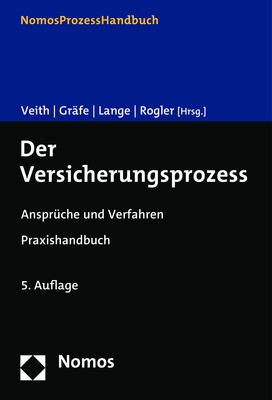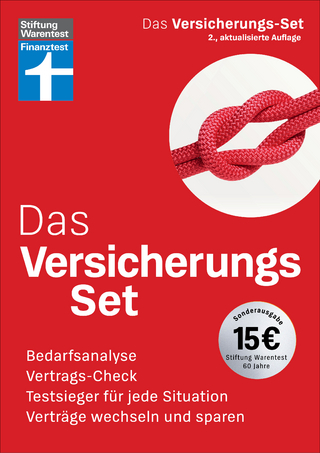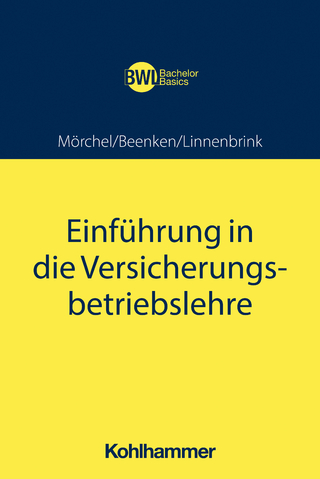
Who Pays for Car Accidents?
The Fault versus No-Fault Insurance Debate
Seiten
2001
Georgetown University Press (Verlag)
978-0-87840-887-0 (ISBN)
Georgetown University Press (Verlag)
978-0-87840-887-0 (ISBN)
Presents various legal, political, historical, and financial arguments about the two types of auto insurance.
In this new volume, two lawyers debate which kind of automobile insurance is the best, no-fault or tort liability. This book presents in one place all the legal, political, historical, and financial arguments about the two types of auto insurance. Under the fault system currently used by thirty-seven states, tort law provides that the party at fault in the accident pays the full damages of accident victims. Jerry J. Phillips favors this system, arguing that it allows for fair compensation to the injured and deters drivers from dangerous behavior on the road. Stephen Chippendale counters this claim with the argument that tort-law based insurance combines high cost and low benefits, and that those who truly profit from it are the lawyers representing injured clients, while their claims clog up the court system. A better solution, he proposes, would be "Auto Choice," a plan under which consumers would choose whether or not they wished to be eligible for damages from pain and suffering. With civility and respect, these two legal scholars present thoughtful and thorough arguments on both sides of the debate, giving readers a balanced view of an issue that affects nearly every American.
It will be of particular value to those in the fields of law, policy, and insurance.
In this new volume, two lawyers debate which kind of automobile insurance is the best, no-fault or tort liability. This book presents in one place all the legal, political, historical, and financial arguments about the two types of auto insurance. Under the fault system currently used by thirty-seven states, tort law provides that the party at fault in the accident pays the full damages of accident victims. Jerry J. Phillips favors this system, arguing that it allows for fair compensation to the injured and deters drivers from dangerous behavior on the road. Stephen Chippendale counters this claim with the argument that tort-law based insurance combines high cost and low benefits, and that those who truly profit from it are the lawyers representing injured clients, while their claims clog up the court system. A better solution, he proposes, would be "Auto Choice," a plan under which consumers would choose whether or not they wished to be eligible for damages from pain and suffering. With civility and respect, these two legal scholars present thoughtful and thorough arguments on both sides of the debate, giving readers a balanced view of an issue that affects nearly every American.
It will be of particular value to those in the fields of law, policy, and insurance.
Jerry J. Phillips is W.P. Toms Professor of Law and Walter W. Bussart Distinguished Professor of Tort Law at the University of Tennessee College of Law. Stephen Chippendale is an associate at the law firm of Cadwalader, Wickersham & Taft in Washington, D.C., and served as Deputy General Counsel to Sen. John McCain's presidential campaign.
Series Editor's PrefaceRita J. SimonThe Case for Automobile Tort Liability Jerry J. Phillips The Case for No-Fault Insurance Stephen Chippendale ResponsesRejoinder-Jerry J. PhillipsRejoinder-Stephen Chippendale Index
| Erscheint lt. Verlag | 18.12.2001 |
|---|---|
| Reihe/Serie | Controversies in Public Policy series |
| Verlagsort | Washington, DC |
| Sprache | englisch |
| Maße | 152 x 229 mm |
| Gewicht | 227 g |
| Themenwelt | Technik |
| Betriebswirtschaft / Management ► Spezielle Betriebswirtschaftslehre ► Versicherungsbetriebslehre | |
| ISBN-10 | 0-87840-887-8 / 0878408878 |
| ISBN-13 | 978-0-87840-887-0 / 9780878408870 |
| Zustand | Neuware |
| Haben Sie eine Frage zum Produkt? |
Mehr entdecken
aus dem Bereich
aus dem Bereich
Bedarfsanalyse, Vertrags-Check, Testsieger für jede Situation, …
Buch | Softcover (2024)
Stiftung Warentest (Verlag)
15,00 €


